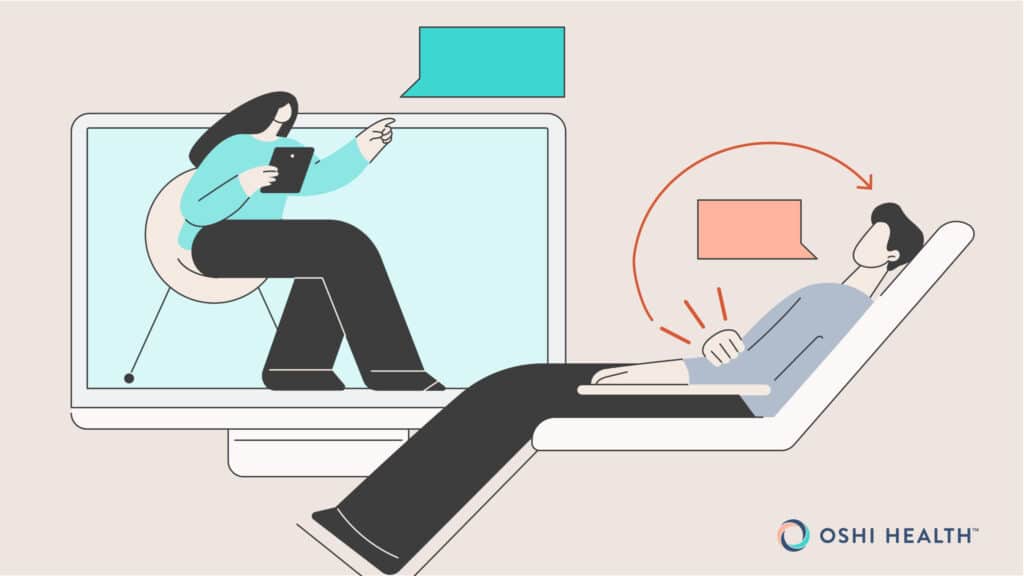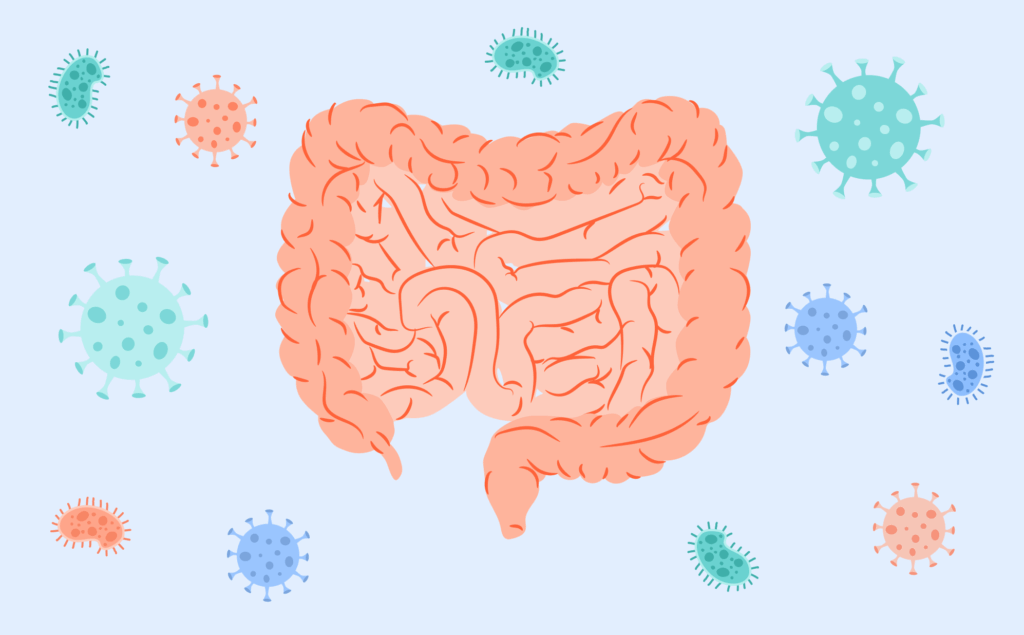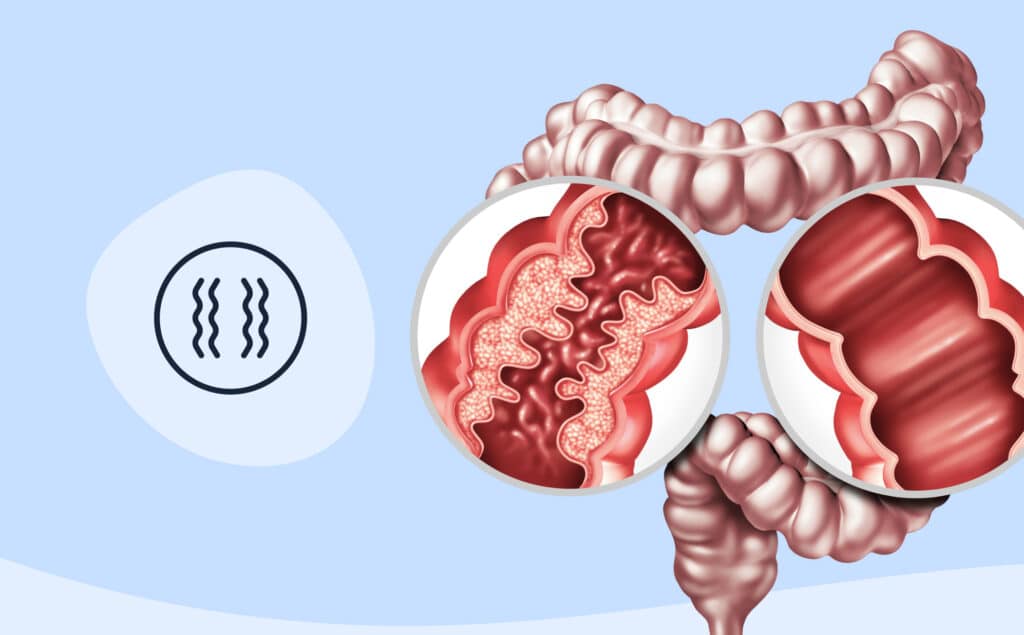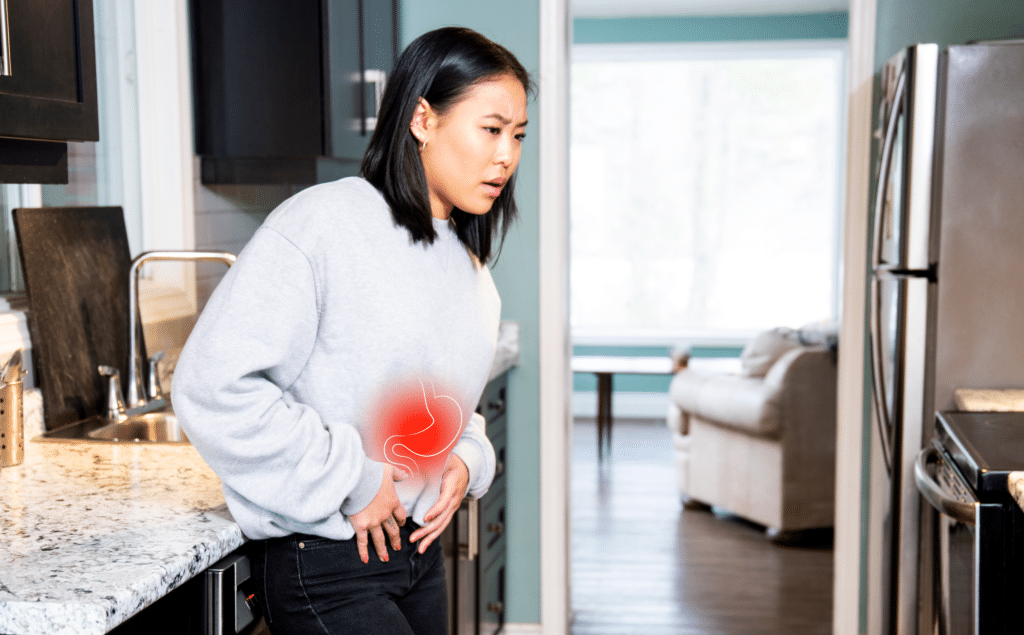Bloating is a common symptom of inflammatory bowel disease (IBD), and dealing with a swollen belly can be more than just uncomfortable — it can be downright painful. To address the root cause of IBD-related bloating, consider working an integrated GI care team, who can address the medical, dietary and behavioral health components.
Keep reading for more information on how IBD can lead to bloating — and how to prevent it.
Reasons for abdominal distention
Chronic inflammation of the digestive tract can impact gut motility — the way that the digestive system moves — and poor motility can lead to bloating (sometimes called ‘abdominal distention’), slow digestion, and cramping pain.
Additionally, people living with Crohn’s disease sometimes develop scar tissue along the intestinal tract. This often leads to narrowing of the intestines, called strictures, Strictures can impact foods’ movement through the intestines, leading to blockages, partial blockages, or slowing of digestion—all of which can cause abdominal distention.
People with IBD who have had intestinal surgery, like a small-bowel resection or colectomy surgery, may also have adhesions (where the bowel wall “sticks” to other bowel or body tissue and scar tissue), which further complicate the path food (and gas) takes through the body.
Finally, people with IBD may have more gas due to food intolerances (like lactose intolerance), and a more sensitivity to dietary choices — and more gas can mean more bloat.
Prevention is key
Your GI Registered Dietitian can help you personalize your approach to managing bloat, as no two people are the same. However, limiting your consumption of common bloat-producing foods may help.
Some foods to avoid might include:
- Legumes, like chickpeas, lentils, black beans, and kidney beans
- Whole grains and starches, like wheat bran, corn, and potatoes
- Lactose-containing dairy products, like milk, some cheeses, and ice cream
- Certain fruits and vegetables, like apples, cabbage, and broccoli
Other ways to prevent gas and reduce bloat include:
- Eat smaller meals and chew slowly
- Sip drinks without a straw
- Avoid gum and carbonated beverages
All these actions can result in swallowing excess air, which can worsen bloating. In addition to dietary interventions, a GI Behavioral Health provider may recommend the following strategies to reduce bloating as a symptom of inflammatory bowel disease:
- Belly breathing
- Mindfulness
- Stress management techniques
When to call your GI provider about bloating:
Your dedicated GI care team should know about all your symptoms, including bloat, and help keep symptoms at bay. If pain or bloating persists or worsens after 48 hours, contact your GI provider, to make sure it’s not a sign of something more serious.
Oshi is your partner in digestive health
Feel like your digestive concerns are running your life? You’re not alone—and we’re here to help you find lasting relief.
Oshi Health GI providers, gut-brain specialists, and registered dietitians work together to address the root cause of your symptoms and find solutions that actually work for you.
Whether you’re dealing with chronic digestive issues or unpredictable symptom flare-ups, our GI specialists deliver:
✔ Personalized care plans tailored to your lifestyle
✔ Science-backed strategies to calm your gut
✔ Compassionate, whole-person care
✔ And so much more!
Ready to take control of your gut health?





